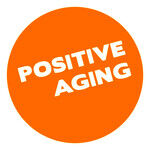"I'm really grateful to all my enablers," a successful businesswoman recently told a TV interviewer.
"I'm an enabler," a blogger writes. "Through listening to others, I give the positive reinforcement that allows them to do things they never thought possible."
"The Holy Spirit is our enabler!" proclaims a TV evangelist.
What's going on here? Encountering these uses of "enabler" to mean a helper or supporter is like seeing El Chapo dressed as a fairy godmother.
In fact, "enabler" originally did mean a person who helps someone achieve a desirable goal. But in the froth of psychobabble that surfaced during the 1960s, "enabler" assumed a distinctively negative connotation — someone who abets, excuses or ignores another person's problem, such as drug or alcohol abuse.
An internet search reveals that the use of "enabler" in print rose an astonishing 2,500 percent from 1960 to 2000, undoubtedly fueled by the popularity of this negative meaning.
And that's its most common connotation today. Donald Trump calls Hillary Clinton a "total enabler" of her husband's affairs, while blogger John A. Tures derides Trump's supporters as "enablers." So anyone using the older meaning of "enabler" to mean a mentor or adviser runs a high risk of being misunderstood.
Several other negative words are often mistakenly used with positive meanings:
—Meretricious: Perhaps because it's so similar to "meritorious," this word is sometimes misused to mean "worthy, competent." Oops. Derived from the Latin word "meretrix" (prostitute), it actually means "showy in a cheap or false way," e.g., "Though appearing expensive, the jewelry was meretricious junk."
—Fulsome: Some people use this adjective to mean "rich, full, vibrant," but others use it to mean "abundant to excess, overdone," as in "fulsome lies and nauseating flattery." So beware of its negative connotations.
—Enervate: Though many people misuse "enervate" to mean "energize, invigorate," it actually means the opposite: "to drain the vigor out of," e.g., "The long, tedious drive was enervating."
—Notoriety: Technically, "notoriety" means simply "fame, renown." But because its adjective form "notorious" bears an unfavorable connotation, e.g., "notorious criminal," saying that someone has achieved "notoriety" can be construed as negative.
Well, I guess it's OK to misuse these words every once in a while ... OMG, I've become an enabler!
Rob Kyff, a teacher and writer in West Hartford, Conn., invites your language sightings. Send your reports of misuse and abuse, as well as examples of good writing, via e-mail to [email protected] or by regular mail to Rob Kyff, Creators Syndicate, 737 3rd Street, Hermosa Beach, CA 90254.






View Comments